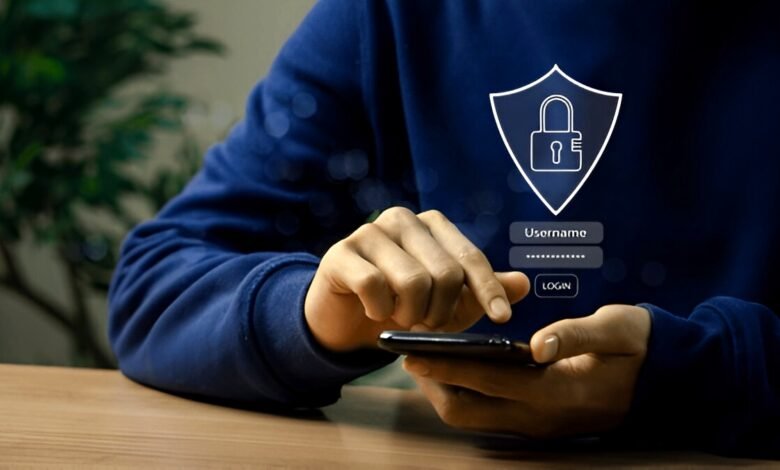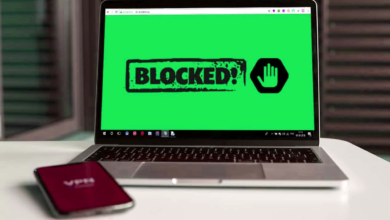
In today’s hyper-connected digital age, safeguarding your personal data is more important than ever—especially in countries like Pakistan, where online privacy laws are still developing. Whether you’re browsing social media, shopping online, or accessing your bank account, your data is constantly at risk of being tracked, hacked, or misused. This comprehensive guide will show you exactly how to secure your online privacy in Pakistan, step by step, using practical and easy-to-implement strategies.
Why Online Privacy Matters in Pakistan
With increasing digital adoption in Pakistan, more people are connecting to the internet every day through mobile phones, laptops, and smart devices. However, the country still faces challenges such as weak data protection regulations, lack of cybersecurity awareness, and growing cybercrime. Pakistani users often unknowingly expose sensitive information due to unsecured Wi-Fi connections, weak passwords, and unencrypted communications.
Ensuring your digital safety isn’t just about protecting your Facebook account—it’s about securing your identity, finances, personal conversations, and even your location. Taking the necessary steps to secure your online privacy in Pakistan is not a luxury—it’s a necessity.
Step 1: Use Strong, Unique Passwords for Every Account
One of the easiest ways to protect your privacy online is by using strong, complex passwords—and never reusing them across platforms. If a hacker gains access to one account, they can easily infiltrate others using the same credentials.
Tips for creating secure passwords:
-
Use a mix of upper and lowercase letters, numbers, and symbols
-
Avoid common words, names, or dates of birth
-
Aim for at least 12 characters
-
Change passwords regularly
🔐 Pro Tip: Use a password manager like Bitwarden, LastPass, or 1Password to store and manage your credentials securely.
Step 2: Enable Two-Factor Authentication (2FA)
Two-Factor Authentication (2FA) adds an extra layer of protection by requiring you to confirm your identity through a second method, like a code sent to your mobile device or an authentication app.
In Pakistan, platforms like JazzCash, Easypaisa, and local banking apps support 2FA. Enabling it will drastically reduce the risk of unauthorized access to your accounts.
Step 3: Use a Virtual Private Network (VPN)
One of the most powerful tools to secure your online privacy in Pakistan is a VPN. A virtual private network encrypts your internet connection and hides your IP address, making it nearly impossible for ISPs, hackers, or government surveillance to monitor your activity.
Best VPNs for Pakistan:
-
NordVPN—Great speed and strong encryption
-
ExpressVPN—Reliable and easy to use
-
ProtonVPN—Good free plan with privacy-first policies
📌 Note: Always choose VPNs with a “no-log” policy to ensure your data isn’t being recorded.
Step 4: Be Mindful of Public Wi-Fi Networks
Free public Wi-Fi is tempting but often unsafe. Cybercriminals frequently exploit unsecured networks in cafes, malls, and airports to intercept data.
How to stay safe:
-
Avoid logging into sensitive accounts (e.g., banking) on public Wi-Fi
-
Use a VPN to encrypt your data while connected
-
Disable automatic Wi-Fi connections on your device
Step 5: Adjust Privacy Settings on Social Media
Social media platforms like Facebook, Instagram, and TikTok can leak a lot of personal information if privacy settings aren’t properly configured. In Pakistan, oversharing on social media is common, especially among the youth.
What to do:
-
Set your profiles to “Private.”
-
Limit who can see your posts, photos, and friend list
-
Turn off location tagging and facial recognition
-
Review apps and third-party permissions linked to your accounts
📲 Protecting your privacy on social media is key to maintaining digital safety.
Step 6: Keep Your Software and Devices Updated
Outdated software can be full of vulnerabilities that hackers can exploit. Make sure all your devices—laptops, smartphones, and tablets—are regularly updated with the latest patches.
What to update:
-
Operating systems (Windows, Android, iOS)
-
Browsers (Chrome, Firefox, Safari)
-
Security apps and antivirus programs
-
Firmware for routers and smart devices
Step 7: Be Aware of Phishing Scams and Malware
Phishing is a common cyber threat in Pakistan. Scammers often use fake emails, SMS messages (also known as “smishing”), or websites to trick users into revealing personal information.
How to recognize phishing:
-
Emails asking for urgent payments or personal data
-
Links that look suspicious or have strange domains
-
Poor grammar or spelling in official-looking messages
Install reliable antivirus software like Kaspersky, Avast, or ESET to scan for malware and protect your devices from threats.
Step 8: Use Secure Messaging Apps
End-to-end encryption ensures that only you and the recipient can read your messages. Popular apps like WhatsApp offer this by default, but apps like Signal and Telegram are more secure and privacy-focused.
Using encrypted messaging apps is vital if you’re sharing confidential data or working remotely in Pakistan.
Step 9: Limit Data Sharing With Apps and Websites
Many apps, especially free ones, collect more data than necessary—including your contacts, microphone access, location, and browsing habits.
Tips:
-
Check app permissions before installing
-
Use browser extensions like uBlock Origin or Privacy Badger
-
Avoid logging into websites using your Facebook or Google account
🧠 Be intentional about what data you’re sharing and with whom.
Step 10: Educate Yourself and Others
Online privacy is a community effort. The more people are aware of digital threats, the safer everyone becomes.
How to spread awareness:
-
Share trusted sources and news about online scams
-
Encourage family and friends to use privacy tools
-
Follow local cybersecurity experts and pages like Digital Rights Foundation or Media Matters for Democracy
🧑🏫 Building a privacy-first culture in Pakistan starts with you.
Bonus Tips to Secure Your Online Privacy in Pakistan
-
Use DuckDuckGo or Startpage instead of Google for private searches
-
Turn off location tracking in your phone settings
-
Use incognito mode when browsing on shared devices
-
Monitor your digital footprint using tools like HaveIBeenPwned
Final Thoughts
The internet is an incredible resource, but it also comes with serious privacy risks—especially in developing digital landscapes like Pakistan. By following the steps in this guide, you can take control of your digital life and protect your identity, finances, and personal information.
To secure your online privacy in Pakistan, you don’t need to be a tech expert. All it takes is awareness, the right tools, and a few simple changes in your digital habits. Whether you’re a student, freelancer, business owner, or everyday internet user, privacy should always be a priority.
FAQs: How to Secure Your Online Privacy in Pakistan
Q: Is it legal to use a VPN in Pakistan?
A: Yes, using a VPN is generally legal in Pakistan, but avoid using it for illegal activities. Choose a trusted provider with a good reputation.
Q: What is the safest browser for privacy in Pakistan?
A: Browsers like Brave, Firefox (with privacy add-ons), and Tor offer enhanced privacy features compared to Chrome.
Q: Can I protect my kids online in Pakistan?
A: Yes, use parental control apps like Qustodio or Google Family Link to monitor activity and block unsafe content.











